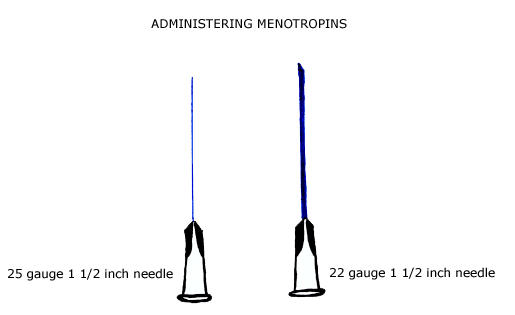|

Needles can differ dramatically in size. Length and diameter (gauge) characterize the size of a needle.
Injections into the subcutaneous tissue (just beneath the skin) often use 1/2 inch or 5/8 inch long needles that are inserted through the skin at a 45 degree angle. The gauge of these needles is often 25 to 28 gauge (very thin).
Injections into the intramuscular tissue often use a 1 1/2 inch needle that is inserted through the skin at a 90 degree angle. The gauge of these needles varies widely. If the medication to be injected is within a water base fluid (as with menotropins and hCG) then a 25 gauge needle is ideal (since it is very thin and will result in less discomfort). If the medication is in an oil based fluid then a 22 to 23 gauge needle is often required (thicker than a 25 gauge needle and less comfortable for the person receiving the injection).
In general, the gauge of the needle and the site of injection determine the discomfort associated with the injection.
|

|